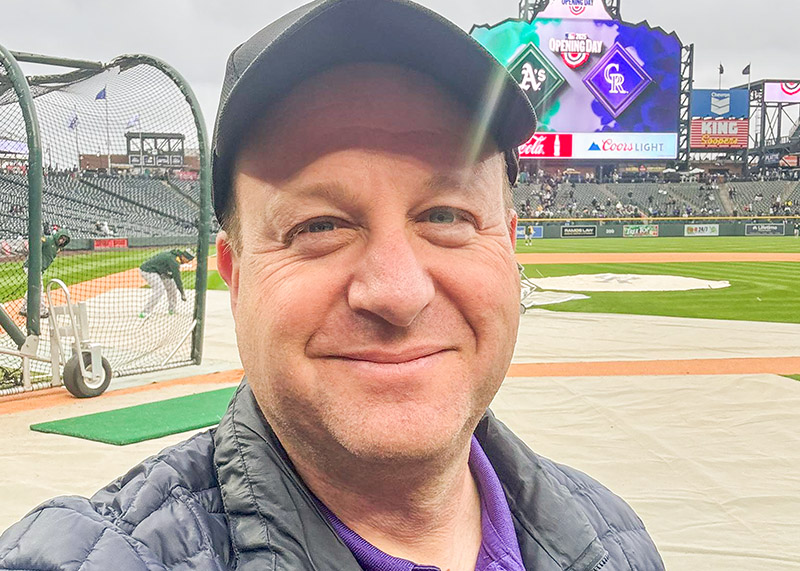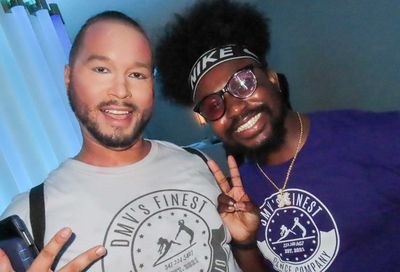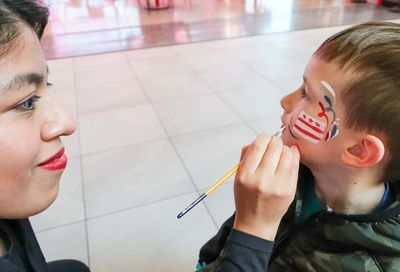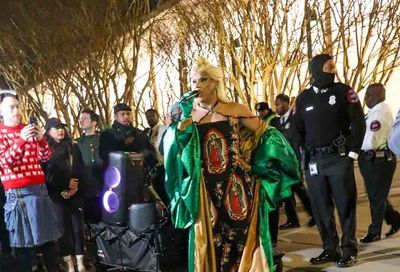Supreme Court Allows Video of Proposition 8 Trial to Be Made Public
Supporters of California's now-defunct same-sex marriage ban had argued that making the tapes public could lead to harassment.

Earlier this week, the U.S. Supreme Court rejected a request from opponents of same-sex marriage who had sought to block video of the 2010 trial that led to the overturn of California’s ban on the practice, also known as Proposition 8.
The high court declined to hear an appeal of a lower court decision from 2020, in which U.S. District Court Judge William Orrick rejected a request to permanently seal the videotapes from the trial, noting that transcripts of the trial had already been released, without any harm befalling the individuals who had argued against legalizing same-sex nuptials.
In 2021, the 9th U.S. Circuit Court of Appeals upheld Orrick’s ruling, finding that social conservatives who had supported Proposition 8 had failed to prove their claim that releasing the tapes could lead to harm or harassment of anyone involved in the case.
During the original Proposition 8 trial, the Supreme Court rejected a request to allow the trial to be publicly broadcast, on the grounds that doing so was not allowed under the San Francisco federal court’s rules. Now-retired U.S. District Judge Vaughn Walker, who presided over the trial, recorded the proceedings, but said at the time that the recordings for for court-related purposes and not intended for public release.
Walker placed an embargo on the videotapes, but San Francisco-based public radio and TV broadcaster KQED filed a motion asking that the tapes be unsealed, reports Reuters.
Scott Shafer, a gay journalist for KQED who covered the Proposition 8 trial, had previously argued, in a press release, that the trial tapes contained dramatic and moving testimony and cross-examinations, and that the trial was an important historical event of importance to “court-watchers, law students, scholars, historians, activists, concerned citizens and those interested in the transparent operation of the judicial branch.”
LGBTQ advocates, including Kris Perry, one of the original plaintiffs in the case, also argued in favor of releasing the tapes for the public to see.
“There is no more important time to expose the discriminatory rhetoric of proponents and the courage of the experts, attorneys, and plaintiffs in standing up against hate,” Perry told KQED. “Even though it’s been 12 years since our ruling, we know the fight for marriage equality and many other basic civil rights is still essential, and this video shows the evidence for why.”
In 2010, Walker ruled that Proposition 8 was unconstitutional and struck down the voter-approved constitutional amendment, claiming it violated the U.S. Constitution’s guarantees of due process and equal protection under the law. Proponents of the measure appealed to the U.S. Supreme Court, which in 2013 allowed Walker’s ruling to stand on narrow procedural grounds, thereby allowing same-sex couples in California to marry.
Two years later, the court ruled in 2015 that all existing bans on same-sex marriage were unconstitutional, resulting in the legalization of marriage equality nationwide.
Following the Supreme Court’s refusal to take up the case, thereby allowing the decision to unseal the trial tapes to stand, it’s unclear when the tapes will be accessible for public viewing, but federal court officials told KQED that they will be released soon and uploaded to a “publicly available site.”
Christopher Dusseault, the lawyer who fought to unseal the video, told Reuters that the Supreme Court’s order cleared the way “for public release of this important historical record.”
“While the trial took place more than 12 years ago, the lessons that it teaches about equality and justice could not be more vital today,” Dusseault said.
Charles Cooper, the lawyer who had fought to keep the trial tapes sealed, lamented the high court’s decision not to intervene, criticizing the lower court’s ruling as “a decision deliberately reneging on a federal district court judge’s solemn and unequivocal promise in open court.”
Yet Walker, the presiding judge in the Proposition 8 trial, told KQED he believed the Supreme Court acted appropriately.
“With everything else going on in the world, not weighing in on this issue was an easy decision,” Walker said. He added that the format of the Proposition 8 trial, with its expert witnesses providing testimony about the history, economics, sociology and psychology of gender roles and same-sex marriage, could serve as a blueprint for judges overseeing cases involving other controversial issues, such as abortion rights.
“It was testimony by people who understood the whole panoply which gender plays in our society and in personal relationships,” Walker said. “Trials reveal things that simply cannot come out when you’re scratching through old dusty books and records of the long past. And I think there are going to be many enactments affecting the abortion rights in the various states in the wake of the Dobbs decision.”
Support Metro Weekly’s Journalism
These are challenging times for news organizations. And yet it’s crucial we stay active and provide vital resources and information to both our local readers and the world. So won’t you please take a moment and consider supporting Metro Weekly with a membership? For as little as $5 a month, you can help ensure Metro Weekly magazine and MetroWeekly.com remain free, viable resources as we provide the best, most diverse, culturally-resonant LGBTQ coverage in both the D.C. region and around the world. Memberships come with exclusive perks and discounts, your own personal digital delivery of each week’s magazine (and an archive), access to our Member's Lounge when it launches this fall, and exclusive members-only items like Metro Weekly Membership Mugs and Tote Bags! Check out all our membership levels here and please join us today!
























You must be logged in to post a comment.